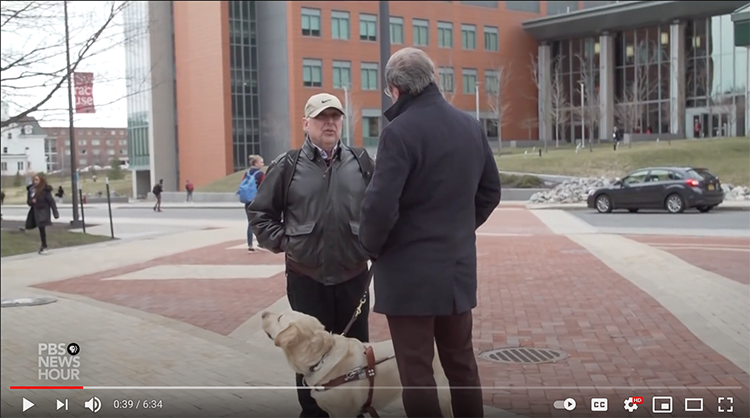Teach This Poem, though developed with a classroom in mind, can be easily adapted for remote learning, hybrid learning models, or in-person classes. Please see our suggestions for how to adapt this lesson for remote or blended learning. We have also noted suggestions when applicable and will continue to add to these suggestions online.
One of these free reading programs or your favorite text-to-audio program on your device.
The following activities and questions are designed to help your students use their noticing skills to move through the poem and develop their thinking about its meaning with confidence, using what they’ve noticed as evidence for their interpretations. Read more about the framework upon which these activities are based.
-
Warm up: (Teachers, before class, we suggest using one of these free reading programs or familiarizing yourself with using a text-to-audio program on your device.) Before class, bring in three to five lines of your favorite poem, song, etc. Rotate reading your favorite lines to each other.
-
Before Reading the Poem: Ask for volunteers to have their favorite poetry lines read by the text to speech programs on their devices. How does it feel to have the lines from a poem read by an electronic device rather than a human voice? What are the differences between the two experiences?
-
Reading the Poem: Read the poem “Night Seasons” by Stephen Kuusisto silently. What do you notice about the poem? Annotate for any words or phrases that stand out to you or any questions you might have.
-
Listening to the Poem (enlist two volunteers to read the poem aloud): Listen as the poem is read aloud twice, and write down any additional words and phrases that stand out to you.
-
Small-group Discussion: Share what you noticed in the poem with a small group of students. Based on the details you just shared with your small group and your activities from the beginning of class, what images feel the most vivid to you? How does the speaker depict the act of reading?
-
Whole-class Discussion: How might the speaker feel about books, language, and reading? How is the speaker “the fool / Of the night seasons”? What might the significance of the title be?
-
Extension for Grades 7-8: Read this interview with the artist. Write three to five additional questions for the poet. Feel free to include specific questions about “Night Seasons.”
-
Extension for Grades 9-12: Work with your teacher and classmates to create an anthology of poems that include audio. Choose any two or three poems to add to the anthology. After the audio poetry anthology is complete, choose two poems to listen to. Write a reaction paper about your experience.
Watch a PBS NewsHour feature on Stephen Kuusisto and his relationship to his guide dog, technology, and poetry. Learn more.
This week’s poetic term is allusion, referring to a reference to a person, event, or literary work outside the poem. Browse the glossary.

